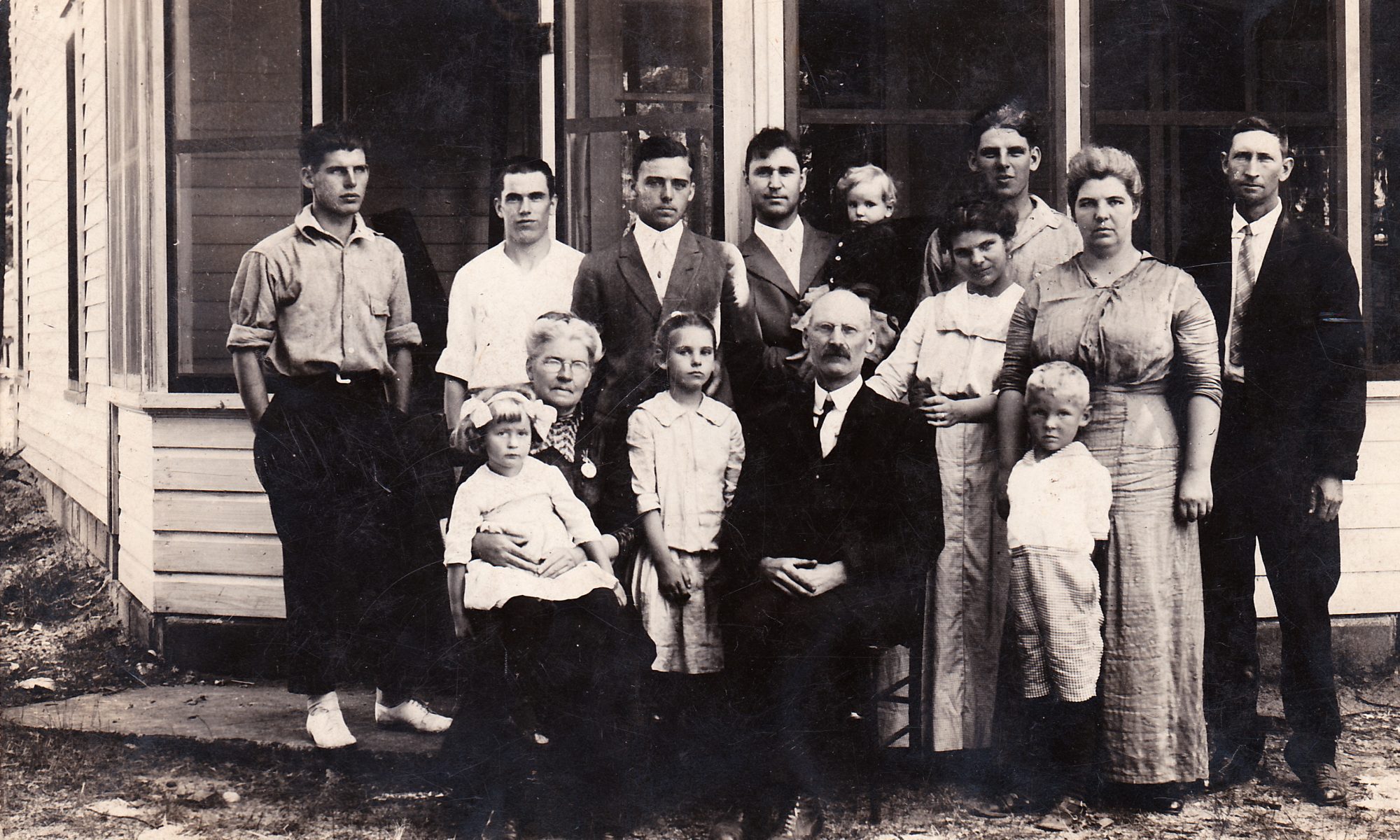Lora C. Jenks was born around 1820 in Oswego County, New York. Very likely his father was Nathan Jenks, and his mother is still unknown to me. I have no birth or baptism record for Lora. In fact the first record I have for him is his purchase of a tract of land in Ionia County, Michigan on March 1, 1850. A few months later he is found in Ronald Township, Ionia County, in the 1850 census. By this time Lora has already married Almira Nettleton, and fathered four children. Sarah, the oldest (and my direct ancestor), was born in 1841, then came Nathan (1843), Margaret (1846), and Alvira (1849). 10 years later, Lora had moved across the county line, but only about 10 miles north, to Bushnell Township, Montcalm County, Michigan. He has had another son, George, and is still a modest farmer. But all this time the United States had been becoming more and more divided, and the Civil War was about to tear the country apart.
April 12, 1861: the first shots of the Civil Wars are fired at Fort Sumter, South Carolina.
November 02, 1861: Lora C. Jenks enlists as a Musician in the Michigan 13th Infantry Regiment.
April 07, 1862: The 13th Michigan takes part in the Battle of Shiloh, Tennessee.
April 30, 1862: Lora is promoted to “Full Sergeant”.
May 1862: The 13th Michigan fights in the Siege of Corinth, Mississippi.
October 01, 1862: Lora is promoted to “Full Principal Musician”.
December 1862-January 1863: The 13th Michigan fights in the Battle of Stones River, Tennessee.
From the regimental history:
The regiment was engaged at Stone River the 30th and 31st of December, 1862, and in January, 1863, where it distinguished itself by its desperate valor and was most warmly commended for the heroic work that checked the onward rush of the confederate forces. The brigade of which the Thirteenth formed a part was commanded by Colonel Charles G. Harker, and was detached from its division and sent to the extreme right of the Union line, where the enemy had crushed that wing, when it formed a line in the immediate front of the confederates and a desperate conflict commenced. The Union forces were steadily pressed back by the enemy, but the Thirteenth held its position until nearly surrounded, when it fell back a short distance and reformed, continually showing a bold front to the enemy. Colonel Shoemaker ordered a bayonet charge and the Thirteenth sprang forward with a yell, driving the enemy from the field in confusion and capturing a large number of prisoners. The regiment lost nearly one third of its strength in killed and wounded in the action on this part of the field. It recaptured two pieces of artillery of the Sixth Ohio Battery, which had been abandoned when the Union forces were driven back by the furious onslaught of the enemy.

September 1863: The 13th Michigan fights in the Battle of Chickamauga, Georgia.
It proceeded almost at once to Chickamauga, where it was engaged the 19th and 20th of September, coming in contact with the enemy near Lee and Gordon’s Mills, and before the close of the battle, lost 107 killed, wounded and missing out of a total of 217, the number of officers and men the regiment carried into action. Such a record tells how the Thirteenth sustained its part in this historic engagement far more eloquently than words can describe.
January 1864: The 13th Michigan Regiment “veteranized” and 173 men, including Lora, re-enlisted.
September 03, 1864: Lora’s son, Henry Jenks, enlists in the 13th Michigan.
November-December 1864: The 13th Michigan joins in the Savannah Campaign, better known as Sherman’s March to the Sea.
March, 1865: The Regiment fights in the Battle of Bentonville, Georgia.
April 9, 1865: Robert E. Lee surrenders to Ulysses S. Grant at Appomattox Courthouse, officially ending the Civil War.
April 26, 1865: The 13th Michigan is with William Tecumsah Sherman when he accepts Joseph E. Johnson’s surrender at Bennett Place in the largest surrender of the war.
July 25, 1865: The 13th Michigan Regiment, including Lora C. Jenks, musters out at Louisville, Kentucky.
Both Lora, and his son Henry, had survived the war that claimed so many lives. And looking at the 1870 census we see that the last of Lora’s children, Lincoln, was born in 1861. A baby boy, named after the President leading the country during a great civil war, spent his first years growing up without a father. The father, who named his son after the great leader, believed in the cause enough to not only leave his baby boy, but to re-enlist after an already dangerous three years. In 1870 Lora has gone back to Bushnell, Montcalm County, and has beaten the metaphorical sword back into a plowshare. He is, however, much more well off. His property, worth $200 in 1850 and $400 in 1860, is worth a stunning $8,000 in 1870. Lora has done well for himself after the war. Not only that, but it seems like Lora became a citizen of some standing in the local community. In 1866 and 1868 he is named as one of Bushnell Townships “County Supervisors”. Then, in 1872 he is appointed to be the postmaster of Vickeryville in Montcalm County, Michigan. But Lora’s rise was cut short, and on the 17th of June, 1875, Lora died of “consumption” (tuberculosis). Interestingly, on his death record the occupation is listed as “Merchant”, even though 5 years earlier he is still listed as a farmer in the census. And unfortunately the death record does not give the name of his parents, but as a Nathan Jenks is the father of a few other Jenks kicking around Montcalm County around the same time, he is likely Lora’s father as well. It seems that Lora survived a terribly dangerous 4 year ordeal, only to be brought down by disease when he was finally becoming well off.




